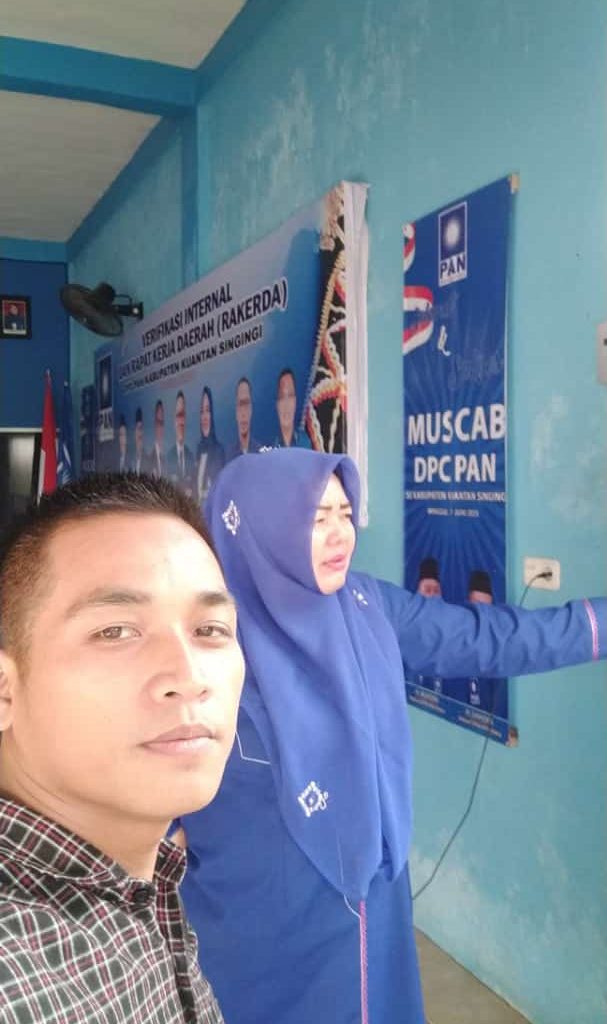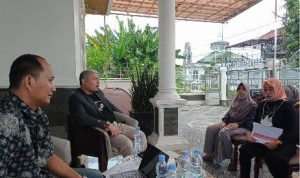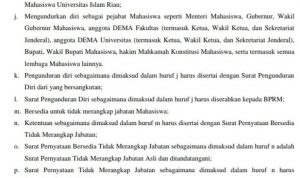by : Muhammad Arif, S.E.,M.M
(A Lecturer of Sharia Economics, Islamic University of Riau)
Teras Riau; Indonesia is a country with the largest Muslim population in the world.There are around 13.1% of the world’s Muslim population living in Indonesia. This fact illustrates that Indonesia has a great potential for the global halal industrial market.
Based on the data from the state of the global Islamic economy report 2018/19, Indonesia is a country that has a market share for the halal industry. The report shows that Indonesia is in the top eight in each category of the halal industry. In terms of halal food especially, Indonesia occupies the first position with spending value reaching 170 billion US dollars. This amount is only a difference of 43 billion US dollars with Turkey that is in the second position.
The halal industry is divided into two categories: the product sector and the service sector. These two sectors are structurally influenced by Islamic law. The products and services are divided into several categories such as halal food, halal travel, Islamic finance, modest fashion, halal media and recreation, and halal pharmaceuticals and cosmetics.
Halal products and services are not only needed by Muslim residents, but also non-Muslim residents since they feel that halal products and services have strict halal certification thatits quality will be guaranteed.
Indonesia’s great potential is an important point for the future of the halal industry. Itshould be maximized well by the government, the community and all relevant stakeholders.
The rapid development of the halal industry will be largely determined by the halal product and service providers. It would be very unfortunate if Indonesia was only used as the world’s halal market, while the products and services were not produced in Indonesia.
In this case, the government has formed a Halal Product Guarantee Agency (BPJPH) to organize a Halal Product Guarantee (JPH) in the Ministry of Religion of the Republic of Indonesia by involving the role of the Indonesian Ulama Council and the Halal Inspection Institution (LPH).
The authority of BPJPHis stipulated in the article 4 no 33 of 2014 of theHalal Product Guarantee Law, including: formulating and stipulating JPH policies, establishing JPH norms, standards, procedures and criteria, issuing and revoking halal certification and halal labels on products, registering certification halal on foreign products, socializing, educating and publishing halal products, conducting LPH accreditation, conducting halal auditor registration, supervising JPH, fostering halal auditors and cooperating with domestic and foreign institutions in JPH.
The establishment of the regulation centralization through BPJPH is a breath of fresh air for the management and quality of products and services produced by the halal industry. It is because through BPJPH, it is expected that the governance and regulations on the issuance of halal certification will be better.
The well-managed potential and government policies related to the halal industry will be largely determined by the role of Indonesia’s human resources (HR) itself. HR is a very fundamental factor in producing products and services that are in accordance with its halal standards.
Indonesian society needs to make a major contribution to the realization of Indonesia as the world’s halal center. The role of the community in choosing the services used both halal goods and services is a concrete step that can be done at the moment.
The need to use products and services with a halal guarantee should be entrenched for all Indonesian people.Prioritizing halal as a basic need in daily life can directly prevent the development of products and services that override halal labels.
BPJPH as an agency formed by the government to organize halal product guarantees must be managed by the human resources who understand and have expertise in the halal concept. Besides understanding and expertise, they also need to have a good commitment and integrity to realize the big dream of the Indonesian people.
Another important human resource is the auditor appointed by the government through BPJPH. The auditors must have a halal scientific background or have been through a good selection process and have received training in a sufficient period of time to understand the concept of halal as a whole.They should also sign the fact of integrity as a form of commitment to carry out standard operating procedures (SOP) with the best and full sense of responsibility, both the responsibility to humans as well as responsibility to Allah SWT.
Halal certification and label is a measure that guarantees the legality of a product or service being marketed. However, the government also needs to make sure that the process of making halal certification must be carried out with a bureaucracy that is simple and straightforward, while still maintaining the principle of prudence and following the procedures.BPJPH must also conduct good supervision of the halal industry which has obtained halal certification to ensure that the management of the industry governance still follows the halal rules for the products and services.
It is a must that the universities contribute to the development of excellet and quality human resources.In the long term,it depends on the ability of the higher education institutions to produce qualified and competitive human resources to actualize the dream of Indonesia to be the halal center of theworld. The higher education should have a halal study program as a forerunner to thehuman resources who are able to make innovation for the development of halal industry in Indonesia and international world.
The synergy between all stakeholders, the government, business actors, and the community to optimize the role and the quality of the human resources involved will determine the realization of Indonesia as the world’s halal center.***







